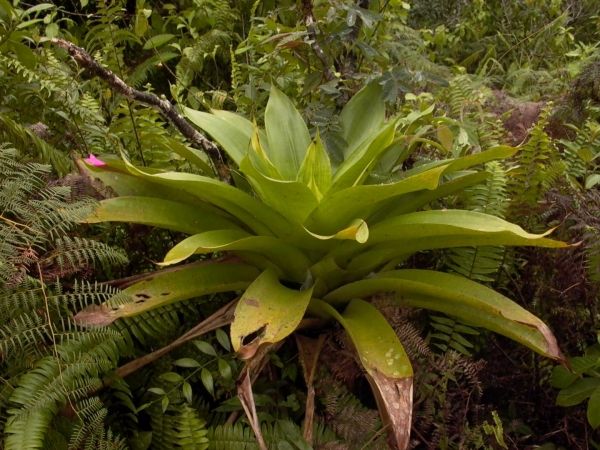An expansive, multi-site ecology study led by UBC has uncovered new insights into the effects of climate change on the delicate food webs of the neotropics.
In research recently outlined in Nature, scientists across seven different sites throughout Central and South America replicated the extreme rainfall events predicted by climate change science. Using the insect larvae that live in the water trapped by bromeliad plants as a model ecosystem, they found that food webs became top-heavy with predators when there were large day-to-day variations in rainfall.
“This has knock-on effects for all parts of the rainforest system, because the larval insects in the bromeliads are destined to become winged adults that then are part of the forest ecosystem around them,” said co-author Diane Srivastava, professor of zoology in UBC’s faculty of science, who established the Bromeliad Working Group, an international consortium of researchers who conducted the research.
To attain their results, scientists in sites spread across Argentina, Brazil, Columbia, Costa Rica, French Guiana and Puerto Rico performed identical experiments on bromeliads—large flowering tropical plants that trap water and provide a habitat for many aquatic insects and larvae. The bromeliads were covered with rain shelters, and researchers watered them on strict schedules to replicate 30 different rainfall patterns in each site.
Read more at University of British Columbia
Image: Scientists used the insect larvae that live in the water trapped by bromeliad plants as a model ecosystem, discovering that food webs become top-heavy with predators when there are large day-to-day variations in rainfall. (Credit: The Bromeliad Working Group/UBC)


